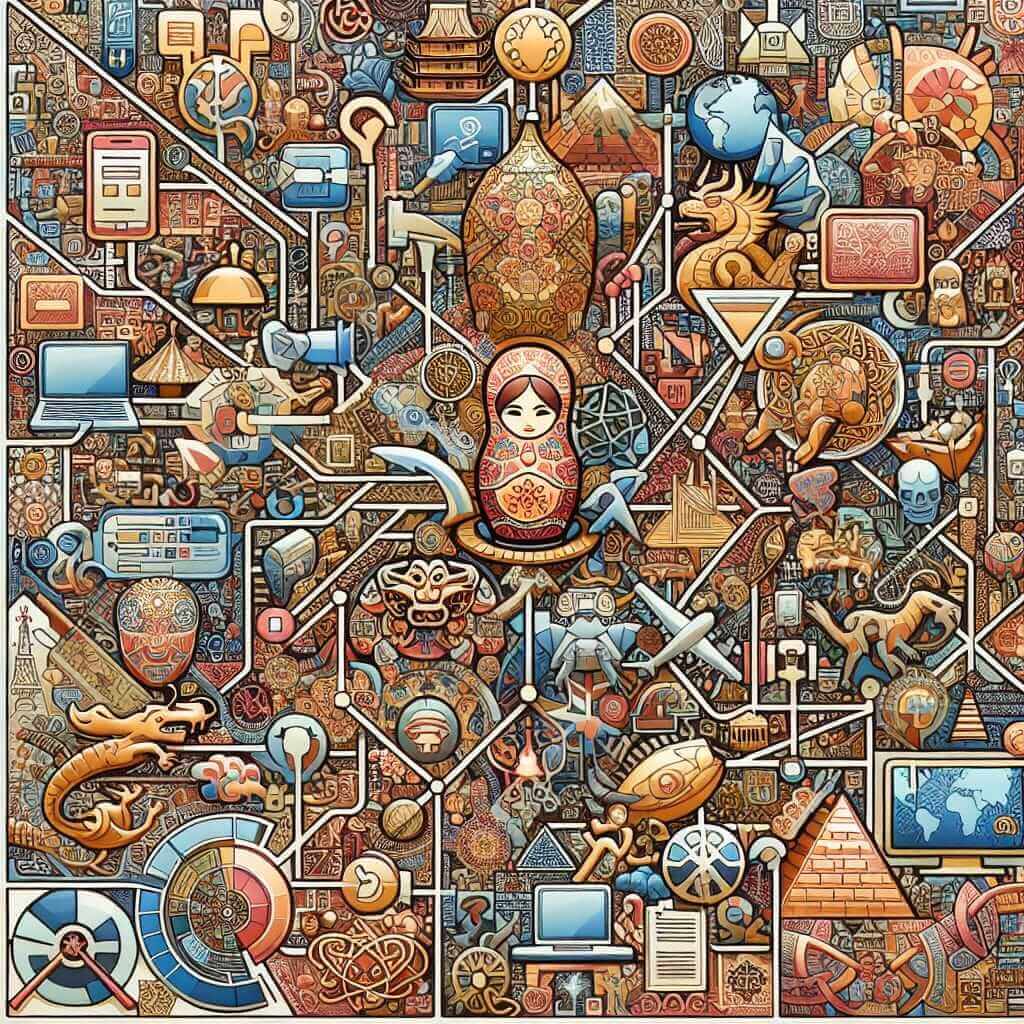The influence of the internet on global cultures is a topic of great relevance in the context of the IELTS Writing Task 2. With globalization and technological advancements, the internet has become a powerful tool that shapes cultural interactions and transformations around the world. Analyzing this topic can provide valuable insights into the complexities of cultural exchange, preservation, and homogenization in the digital age. This essay will explore various aspects of how the internet affects global cultures, providing a sample answer and thorough analysis.
Possible IELTS Topics:
- Discuss the positive and negative impacts of the internet on global cultures.
- To what extent has the internet influenced cultural homogenization around the world?
- How has the internet contributed to the preservation of local traditions and culture?

Chosen Topic and Analysis
Topic
Discuss the positive and negative impacts of the internet on global cultures.
Task Analysis
This prompt asks candidates to discuss both positive and negative impacts, hence a balanced argument is expected. Key aspects to include: cultural exchange, cultural homogenization, preservation of traditions, and the spread of global culture. Use examples or case studies where relevant.
Sample Answer
The proliferation of the internet has undeniably influenced global cultures in a multitude of ways, both positively and negatively. While it has facilitated cultural exchange and democratized access to information, it has also contributed to the homogenization of cultures and the erosion of local traditions.
On the positive side, the internet serves as a bridge connecting people from diverse cultural backgrounds. It promotes intercultural dialogue and understanding, enabling individuals to learn about different customs, languages, and traditions. For instance, platforms such as YouTube and social media allow users to share cultural content globally, fostering a sense of global community. Furthermore, the internet democratizes access to educational resources, enabling people from disadvantaged backgrounds to learn about and appreciate various cultural heritages.
In contrast, the negative impact of the internet on global cultures cannot be overlooked. The pervasive nature of the internet accelerates the spread of dominant cultures, particularly Western culture, leading to cultural homogenization. This results in the diminishing diversity of cultural expressions as local customs and traditions are overshadowed by global trends. A case in point is the ubiquitous presence of Western fast food brands and entertainment, which gradually replace traditional cuisines and local performing arts.
Moreover, the internet can facilitate the appropriation and misrepresentation of cultures. Cultural elements may be taken out of context and commercialized, leading to a loss of their authentic meaning. For example, traditional attire and ceremonies can be trivialized when presented merely as fashionable trends or entertainment, which can undermine the cultural values and significance they hold.
Nevertheless, the internet can also play a pivotal role in cultural preservation. Digital archives and online platforms dedicated to local traditions help in documenting and disseminating endangered cultural practices. These resources ensure that future generations can access and learn from their cultural heritage, despite the pressures of globalization.
In conclusion, the internet has a dual impact on global cultures. While it promotes cultural exchange and accessibility, it also risks homogenizing and misrepresenting diverse cultures. The challenge lies in leveraging the internet’s potential to enhance cultural understanding while safeguarding the unique traditions and identities that form the rich tapestry of human culture.
(350 words)
Tips for Writing on This Topic
Vocabulary and Grammar Tips
- Balanced Arguments: Use cohesive devices such as “On the other hand,” “In contrast,” and “However,” to clearly present both positive and negative points.
- Academic Vocabulary: Aim to use high-level vocabulary such as “proliferation,” “homogenization,” “democratized access,” “appropriation,” and “misrepresentation.”
- Examples and Case Studies: Use specific examples to support your points. References to platforms such as YouTube, social media, and specific cultural instances add depth to your arguments.
Complex Structures
- Cause and effect sentences: “As the internet pervades daily life, it brings about changes that can lead to the homogenization of global cultures.”
- Conditional sentences: “If cultural elements are commercialized without reference to their origins, it can result in a loss of their authentic meaning.”
Key Vocabulary and Definitions
- Proliferation (n): /ˌprɒlɪfəˈreɪʃən/ – rapid increase in numbers.
- Homogenization (n): /həˌmɒdʒɪnaɪˈzeɪʃən/ – the process of making things uniform or similar.
- Democratized (adj): /dɪˈmɒkrətaɪzd/ – made accessible to all people.
- Appropriation (n): /əˌprəʊpriˈeɪʃən/ – the action of taking something for one’s own use, typically without the owner’s permission.
- Misrepresentation (n): /ˌmɪsˌrep.rɪˌzenˈteɪ.ʃən/ – false or unjust representation of something.
Conclusion
Exploring the influence of the internet on global cultures is crucial for understanding the dynamic of our interconnected world. While the internet plays a significant role in promoting understanding and accessibility, careful strategies are necessary to preserve the diversity and integrity of local traditions. Anyone preparing for the IELTS exam should consider these perspectives and practice writing balanced essays on this topic. Other potential questions could explore the influence of global communication on cultural preservation or the impact of globalization on cultural practices, further broadening the scope for preparation.
For further resources, check out related articles such as The Influence of Global Communication on Cultural Preservation and The Impact of Globalization on Cultural Homogenization.